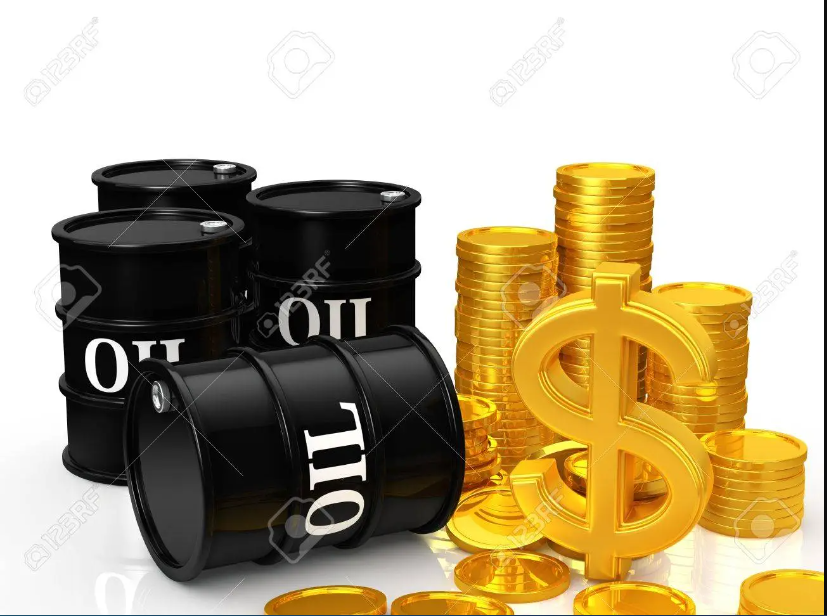Nigeria breathes relief as oil fetches N450b extra revenue with increased output
By Jeph Ajobaju, Chief Copy Editor
Nigeria made extra N449.93 billion revenue from oil in December 2023 and January 2024, going by the latest reports on oil production.
Nigerian Upstream Petroleum Regulatory Commission (NUPRC) is yet to release oil production figures for February 2024 but its latest data shows oil output rose in December 2023 and January 2024.
Oil production (excluding condensates) increased by 3.88 million barrels (mb) in December 2023 versus November.
Data from the Country Economy, a global economic and statistical firm, put the average cost of Brent, the benchmark for crude oil, at $77.63 per barrel in December 2023.
By increasing production by 3.88 mb multiplied by $77.63 per barrel (pb), the treasury earned additional $301.2 million or N244.79 billion revenue from oil in December 2023 at the official average exchange rate of N812.7 per dollar that month.
Production of 2.81 million more barrels of oil (excluding condensates) in January 2024 against the output in December 2023 at the average cost of $80.12 pb of Brent crude that month fetched $225.14 million.
At the average official exchange rate of N911.19 per dollar in January, the $225.14 million translated to N205.14 billion.
Meaning Nigeria earned addition $526.34 million or N449.93 billion from oil in the two months alone.
__________________________________________________________________
Related articles:
Dangote Refinery plans creating trading arm in London
Nigeria to earn $10b exports, save $25b through Dangote Refinery
NNPC canvasses for $32.61b to revamp refineries, pipeline infrastructure
Nigerian elite steal $46.16b crude oil in 7 years
__________________________________________________________________
Oil production breakdown
NUPRC oil reports show the total volume of crude (excluding condensates) produced in November 2023 was 37.51 mb. With condensates, the total increased to 43.98 mb, according to The PUNCH.
Daily crude oil output for November 2023 was 1.25 mb, which grew to 1.47 mb when condensates are added.
Total crude oil output was 41.39 mb in December 2023, with condensates it was 48.14 mb.
The NUPRC said daily crude oil production in December 2023 was 1.34 mb but rose to 1.55 mb with condensates.
Oil production increased in January 2024, when total output was 44.2 mb but rose to 50.93 mb with condensates.
For daily production, crude oil output was 1.43 mb in January 2024, while with condensates it was 1.64 mb.
The NUPRC recently announced a new crude oil production target of 2.5 mbpd to boost foreign exchange (forex).
“The commission has been working assiduously to ensure that the Petroleum Industry Act is effectively implemented for growth in oil and gas reserves as well as achieving the national average daily production target set at 2.5 million barrels of oil and condensate per day in the near term,” NUPRC Chief Executive Gbenga Komolafe explained.
“The oil and gas reserves in Nigeria represent 30 per cent and 34 per cent of the African oil and gas reserves respectively. Our vast reserves hold immense potential for sustainable development and prosperity.
“Although the actual national production currently averages 1.33 million barrels of oil per day and 256,000 barrels of condensate per day, the national technical production potential currently stands at 2.26 million bpd while the current OPEC quota is 1.5 million bpd.”
Komolafe said closing the gap between the actual oil production and the technical potential presents a window of opportunity for investors and a significant opportunity for Nigeria to unlock additional revenue streams, address the current forex gap and strengthen economic resilience.
Beside hydrocarbon resources, he added, Nigeria is blessed with potentials for green and blue hydrogen, solar, wind, biomass, and critical minerals to develop clean energy technologies as well as a growing population dominated by young people.
“With a coastline along the Gulf of Guinea, a market size of more than 200 million people projected to reach between 390 million and 440 million people in 2050, Nigeria represents hope for Africa.
“Interestingly, about 70 per cent of the Nigerian population are under 30, and 42 per cent are under the age of 15, representing a huge economic asset.
“Indeed, Nigeria’s potentials are derived from its human, natural and material resources which must be mobilised to propel her on a path of economic growth and development and for her sustainable energy future.”


